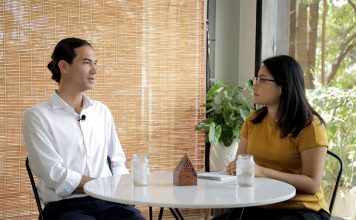The European Union yesterday launched its biggest budget programme in the Kingdom to date.

Named ‘Cambodia Programme for Sustainable and Inclusive Growth in the Fisheries Sector’ (Capfish), the new scheme seeks to boost fish production in the Kingdom. The launch follows the recent conclusion of a five-year agriculture project funded by the bloc.
Funded with 112 million euro (roughly $124 million), Capfish will run from 2019 to 2023.
According to the EU press release, Capfish’s goal is to “increase food security, improve nutrition and foster further economic development.”
In the press release, the EU said Capfish is the largest funded action by the European Union in Cambodia, consisting of two complementary activities – aquaculture and capture (wild) fisheries.
Eighty-seven million will be allocated to the capture fisheries subprogramme which aims to ensure a more sustainable, climate-resilient, and inclusive development of Cambodia’s freshwater and marine fisheries.
Capfish-aquaculture, on the other hand, will run on a budget of 25 million, aiming to increase farmed fish volume.
Speaking at the launch yesterday, Agriculture Minister Veng Sakhon said the programme is in line with the government’s goal of enhancing sustainability and inclusiveness in the fisheries sector.
“The ministry calls on all officials, development partners and relevant institutions working with the EU on this project to work hard and diligently to make the project a success,” Mr Sakhon said.
“Continued cooperation between the ministry and the EU under this new fisheries programme over the next five years will produce satisfactory short and long-term result for farmers, private sector and consumers,” Mr Sakhon said.
According to the ministry, from 2013 to 2018, yearly aquaculture production rose by 160,000 tonnes, with total fish production reaching 600,000 tonnes last year.
Mr Sakhon said the government now aims to increase fish yields to 620,000 tonnes a year and grow aquaculture production by 20 percent by 2023.
George Edgar, the outgoing EU Ambassador to Cambodia, said the EU is delighted to see that its assistance has contributed to the progress of the fisheries and livestock sectors in Cambodia, benefiting scores of farmers around the country.
“The EU wants to see Cambodians benefit sustainably and equitably from the amazing resources of the Tonle Sap Lake and marine fisheries that are today at risk of being lost,” Mr Edgar said in the event.
Minh Bunly, programme coordinator at Fishery Action Coalition Team, echoed the ambassador’s remarks and said the fisheries sector has grown significantly in recent years thanks to support from the government, including efforts to crack down on illegal fishing activity.
“The programme will play an important role boosting the fisheries sector in Cambodia, particularly in building and strengthening the law on fisheries,” Mr Bunly said.
“Fish yields, both inland and marine, and aquaculture production have grown remarkably. This programme will continue to support the government, NGOs and developing partners to further improve the fisheries sector.”
Yesterday’s ceremony also marked the end of the ‘Promotion of Inclusive and Sustainable Growth in the Agriculture Sector: Fisheries and Livestock’ programme, a 20-million project that, from 2013 to 2018, sought to improve the sustainability of fisheries and livestock resources in the Kingdom.









